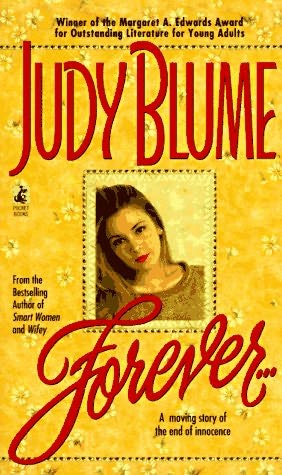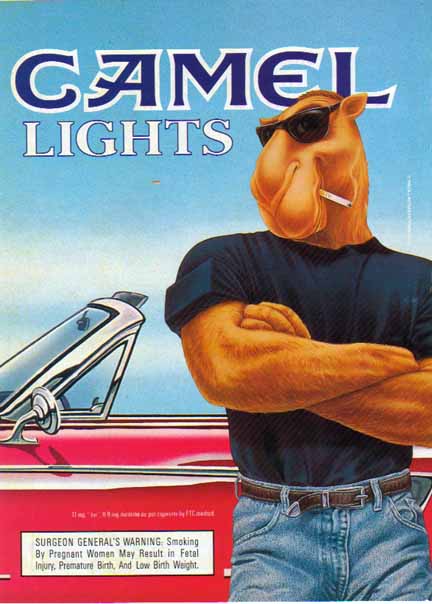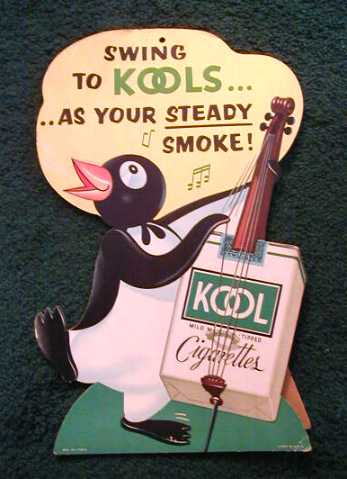
If you believe daytime TV is growing increasingly trashier each year, raise your hand. If this is a toughie, I'll give you all a minute or two to think it over. All right, time's up. You ready? Heads down, hands up. No peeking, I'll take a count.
It's officially unanimous. I know it, you know, the American people know it. Elsewhere across the globe, people are scratching their heads and saying, "Wow, is it just me, or has daytime TV really taken a turn?" That's just a rough translation from Estonian, of course, but you get the point.
Ricki Lake
Slimmed-down Hairspray alum Ricki Lake hosted this eponymous daytime talk rag, tantalizing us with the tawdriest of topics. Ricki's show was trashy, pure and simple. We loved dragging out the alleged perpetrator--be it cheating or, in the above case, cousin marryin'--and hissing and booing them to our hearts' collective content.
The satisfying thing about these shows wasn't so much that they were scandalous, but rather that they made us feel better about our own vanilla Wonderbread mundane lives. Sure, we weren't out there wrestling alligators and winning Nobel Prizes, but we also weren't marrying our cousins. Ricki's show served as a sort of trashiness litmus test, and unless you're gazing at a current photo of you and a close relative locked in a passionate embrace, I'd say you passed.
Geraldo
We all like a good fight now and then, but Geraldo really knew how to drive the point home. Early in his series (1988), he invited a slew of ideologically mismatched hate spewers and social activists to duke it out onscreen. Geraldo put skinheads and neo-Nazis onstage with Jewish and black activists and surprise of surprises, it got ugly. Remember, this was just the beginning, but you've got to admire him laying it all out there so early in the game.
Geraldo started strong, but went soft on us by the mid-to-late 90s. They re-spun his show as the more formally titled Geraldo Rivera Show and attempted to showcase a softer, more serious host. Clearly their hosts had missed the memo that people watched tabloid talk shows for the trashiness factor. I mean, we all got the memo. Also, I heard they forgot to file their TPS reports. For shame.
Jenny Jones
Jenny Jones was a Springer-like daytime offering, with only slightly less skeezy topical content. It was, nonetheless, absolutely ridiculous. I mean, there was a show called You May Shake it for Money, But Leave Those Sexy Clothes at the Club, Honey! I'm not saying I wouldn't watch it, I'm just disparaging the writers' poor rhyming scheme.
The Jenny Jones show is now infamous for its implications in a murder case, the crime committed following an appearance on Jones's show. The Ambush was a popular 90s talk show trope as unsuspecting guests were confronted without warning. Michigan native John Smitz came on the show to learn of a secret admirer only to find that the mysterious source of affection was not a woman as he expected but one of his male acquaintances. Reportedly "humiliated" by the incident, Smitz fatally shot his male admirer just days after the episode was filmed. And you thought those episodes about wayward teens bombed. Talk about putting a damper on things.
The Phil Donahue Show
Yep, that's Donahue getting told by Marilyn Manson. Sorry, pal, he only likes the trashier talk shows. Tough break.
Yes, the snowy-haired Donahue we knew in the 90s had already racked up a good twenty years in the talk show business at that point, but his show was pretty adept at keeping up with the times. Despite his increasing resemblance to that old guy from Up, Donahue kept with it for awhile.
Unfortunately for our boy Phil, the incredibly overstocked marketplace of daytime talk shows eventually squeezed him out. While once he'd reigned over the airwaves, new and more salacious (read: shameless) shows eventually got the better of his once-loyal audience. Once upon a time they may have been shocked to hear about the dangers of reverse vasectomies, it seemed pretty tame in comparison to stories of incorrigible six-year olds hell bent on becoming strippers. Or, you know, whatever other filth his opponents were cooking up and serving to us in our daily dose of daytime dirt.
Jerry Springer
Jerry Springer is perhaps the most notorious of these daytime tabloid talk show hosts, if nothing else than for the sheer volume of fights per episode. You'd think his guest simply spend their lives looking for someone to punch in the face, yearning to be held back by a beefy humorless security guy.
Springer is pure entertainment and pretty much no substance, but it doesn't masquerade itself as much other than a sensationalist freakshow. It's like going to the car races to see a fiery fatal crash. You're horrified, but you also just can't look away. It's like some sort of magnetic force field that tugs your vocal chords and prompts you to chant, "Jerry! Jerry!" till everyone onstage has been sufficiently beaten up.
Sally Jessy Raphael
Sally Jessy didn't just have a fun-to-say name, she also had a fun-to-impersonate look. Inasmuch, her show sometimes paraded males costumed in Sally Jessy drag, each more huge glasses-ed and signaturely crop-topped than the last. Actually, tons of Sally's shows featured all sorts of drag queens, whether in pageants or singing showcases. I have no idea why. At least they had the kind sense to call them "female impersonators". Very professional.
Raphael was even spoofed by the usually benign Sesame Street. Now that's how you know you've made it, when there's a grouch character modeled after you:
Maury Povich
A long long time ago, in a galaxy lightyears from here, Maury Povich's show was not simply the who's-your-baby-daddy parade it is today. Back in the 90s, he also used to cover topics like out-of-control overweight babies and irrational snail phobias. These days, though, he's not quite so classy. I'm pretty sure he has some sort of autopilot mode that intones deeply, "The lie detector test determined that that was a lie. You are not the father!"
The Montel Williams Show
Montel pulled what shall now be referred to as a "reverse-Maury" or a "Geraldo special" depending on your point of view and/or preference for well-groomed mustaches. The show started out trashy and actually moved out of the genre rather into the gaping void of the morally empty abyss. The show's later years were characterized by inspirational tales of overcoming adversity and succeeding in the face of life challenges. In other words? It got boring. Bring back silicone breast implant nightmares!
Oprah
How can you not love a woman who brings out a big ol' barrel of fat to document her own embarrassing diet struggles? That's just good TV.
No one can deny that Oprah is one of the most powerful and influential women alive. She tells us what our favorite things are and we dutifully go purchase $50 cookie dough and cashmere ponchos. She tells us what to read and we eagerly seek her sanctioned stamp of approval at bookstores everywhere. Everyone wanted to talk to her. Even the often elusive Michael Jackson (video above) opened up to her. She's like a good girlfriend we all just want to spill our guts to. In front of millions of people. To possibly get a free car. Thanks, O.
Love them or hate them, these shows expose a deep inner part of our human nature, one for which we yearn to see the complete and totally ridiculous humiliation of others to make ourselves feel better. Some of these shows have grown more salacious with age while others have tamed their trashtastic inner beasts, but in the 90s, the tabloid talk show ruled. Heck, we grew up with it, and we turned out okay, right? Now excuse me while I go file a slew of paternity suits.




















